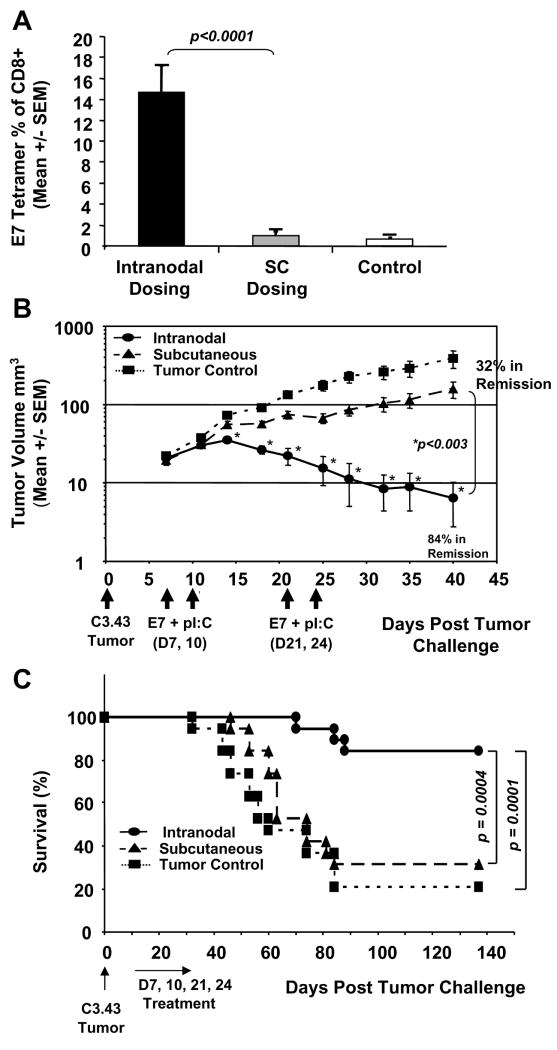Fig. 2.
Intra-lymph node immunization with E7 peptide and pI:C mediates immunological regression of solid tumor. In a therapeutic model of HPV 16, the anti-tumor efficacy of intranodal versus subcutaneous (SC) dosing was compared. C57BL/6 mice were challenged SC with 105 C3.43 HPV tumor cells on day 0 and then immunized with a mixture of E7 49-57 peptide and pI:C in each bilateral inguinal lymph node (n=19) or an equivalent amount of vaccine SC (n=19) on day 7, 10, 21, and 24. The immune response was measured by E7 49-57 tetramer staining on day 31 from peripheral blood (A) and tumor size for each group was calculated and compared to untreated tumor challenged control (n=19) mice (B). Lymph node immunized mice generated statistically significant E7 49-57 specific immune responses with an average of 14.5% tetramer positive CD8+ T cells (A) compared to SC dosed mice (p < 0.0001). In addition, tumors in mice immunized in the lymph node began to regress on day 15 resulting in 84% of animals in remission at day 40 (B). This response was significantly superior to animals dosed SC (p < 0.003) whose tumor progression was only delayed compared to tumor controls but resulted in 32% of animals in disease remission. Untreated tumor control mice displayed background levels of E7 tetramer staining (A) and their tumors progressed exponentially without regression as expected (B). Log-rank statistical tests confirmed that survival in the E7 + pI:C group was significantly prolonged when compared to animals immunized SC (p = 0.0004) or when compared to tumor controls (p = 0.0001) (C).

